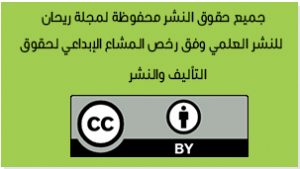الفرق بين الأحاديث العامة والروايات التفسيرية في تطبيق قواعد الحديث
In this article, I discussed the position and dealing of hadith scholars with interpretive narrations, and that the chains of transmission of hadiths and general prophetic effects are studied on the basis of the rules of hadith principles. Does the ruling on interpretive narratives also depend on the same rules, or is there a difference between them? This research was conducted using the library method. The aim of the research is to highlight the relationship between interpretation narratives and hadith, The results of the study show that the opinions of scholars differ regarding the explanatory narrations. Is it subject to the rules of hadith scholars? Some of them are strict in dealing with interpretation narrations, and only those who meet the five well-known conditions for accepting authentic and good hadith will accept them.And among them are those who say that subjecting the chains of interpretation to the method of criticism of the hadith scholars constitutes a waste of interpretation and a rejection of the opinions of the eminent interpreters of the Salaf, and it is a reason for the loss of much of the knowledge transmitted by these eminent scholars, as most of it is not free from challenge and is not free of weakness. The most likely opinion in my opinion is to mediate between the hardliners who see the necessity of dealing with the evidence of interpretation in the same manner in which we deal with the evidence of the hadith, and the lenient ones who go to accept it without controls and restrictions.
Keywords: Interpretation, Hadith, Narratives, Chain of Transmission, Principles, Rules.
Professor Sediqullah KARIMI, Department of Islamic Studies, Faculty of Sharia, Nangarhar University – AFGHANISTAN
Professor Sayed Asadullah HASHIMI, Department of Tafseer, Faculty of Sharia, Nangarhar University – AFGHANISTAN
Ahmad Arif SHAHIR, Department of Islamic Studies, Faculty of Sharia, Helmand University – AFGHANISTAN
 مجلة ريحان للنشر العلمي مجلة علمية، محكمة، شهرية، مفتوحة الوصول
مجلة ريحان للنشر العلمي مجلة علمية، محكمة، شهرية، مفتوحة الوصول
